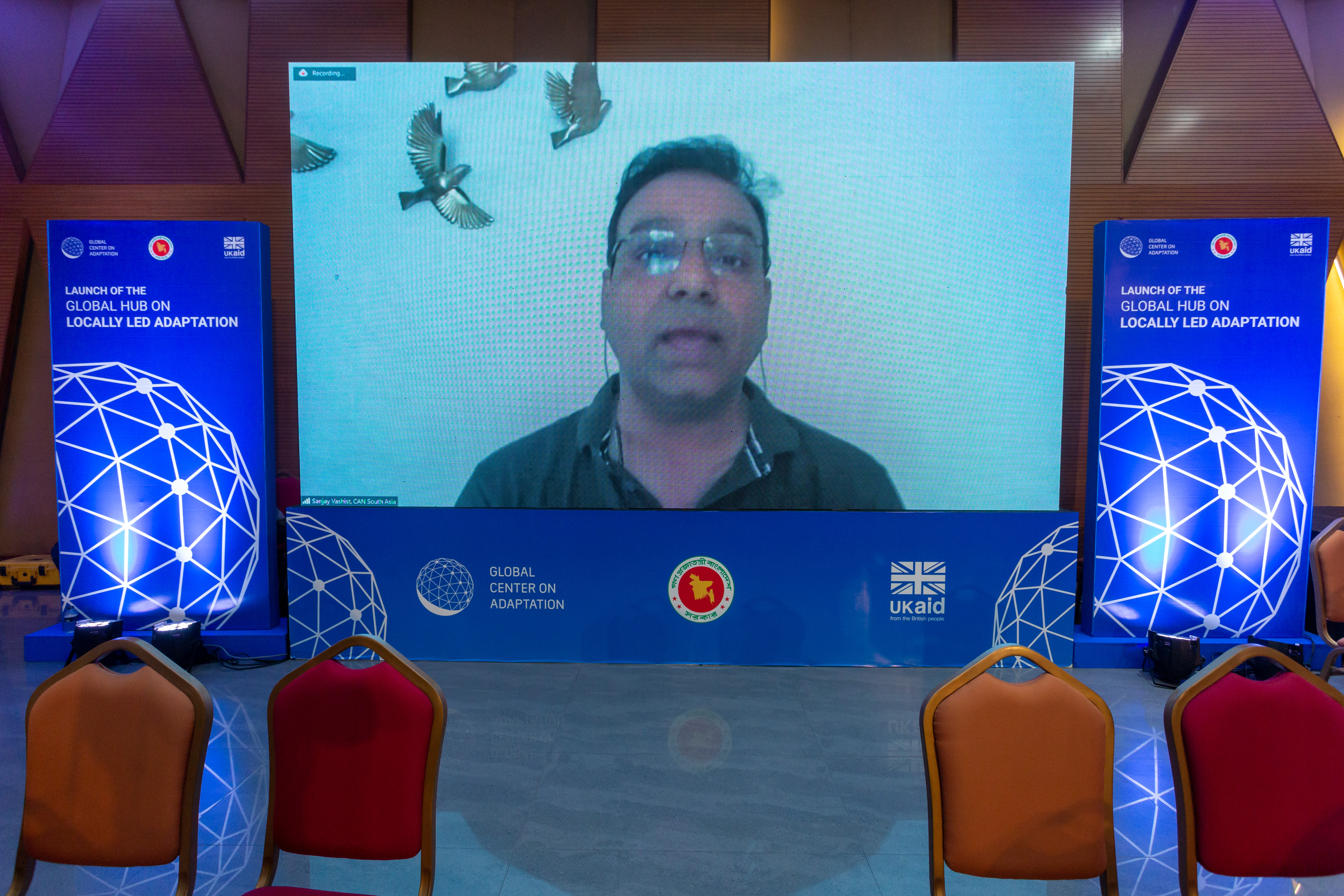GCA South Asia Partnership Forum 2022
11 December 2022, Dhaka, Bangladesh
The launch of the Global Hub was followed by a South Asia Partnership Forum at the same venue (Bangladesh Foreign Service Academy), focused on sharing experiences and lessons on scaling up LLA. The Forum, moderated by Anju Sharma, GCA Global Lead on LLA, started with opening remarks from GCA CEO Professor Patrick Verkooijen.
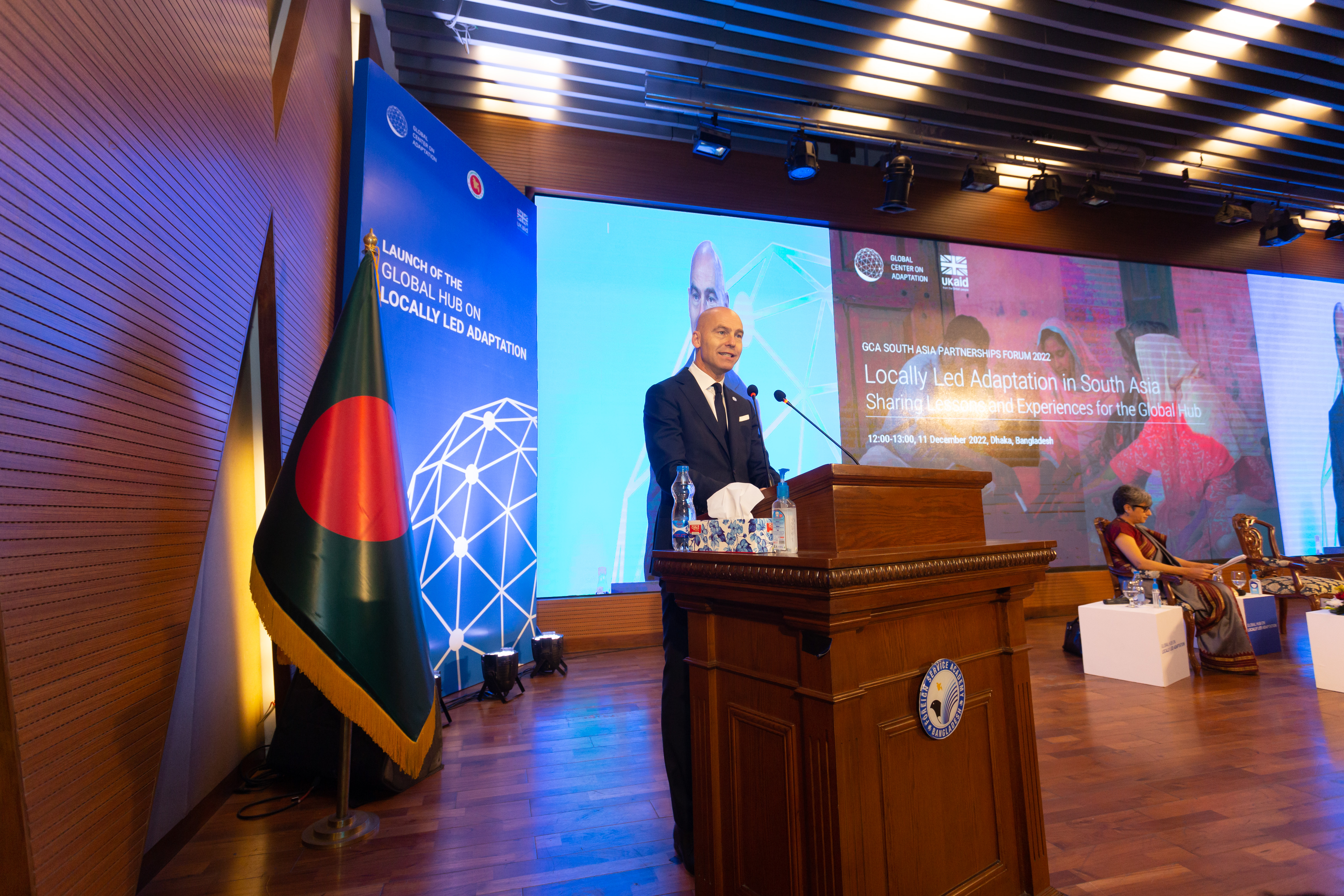
It was followed by a brief presentation by Anju Sharma on the activities of the Global Hub on LLA.
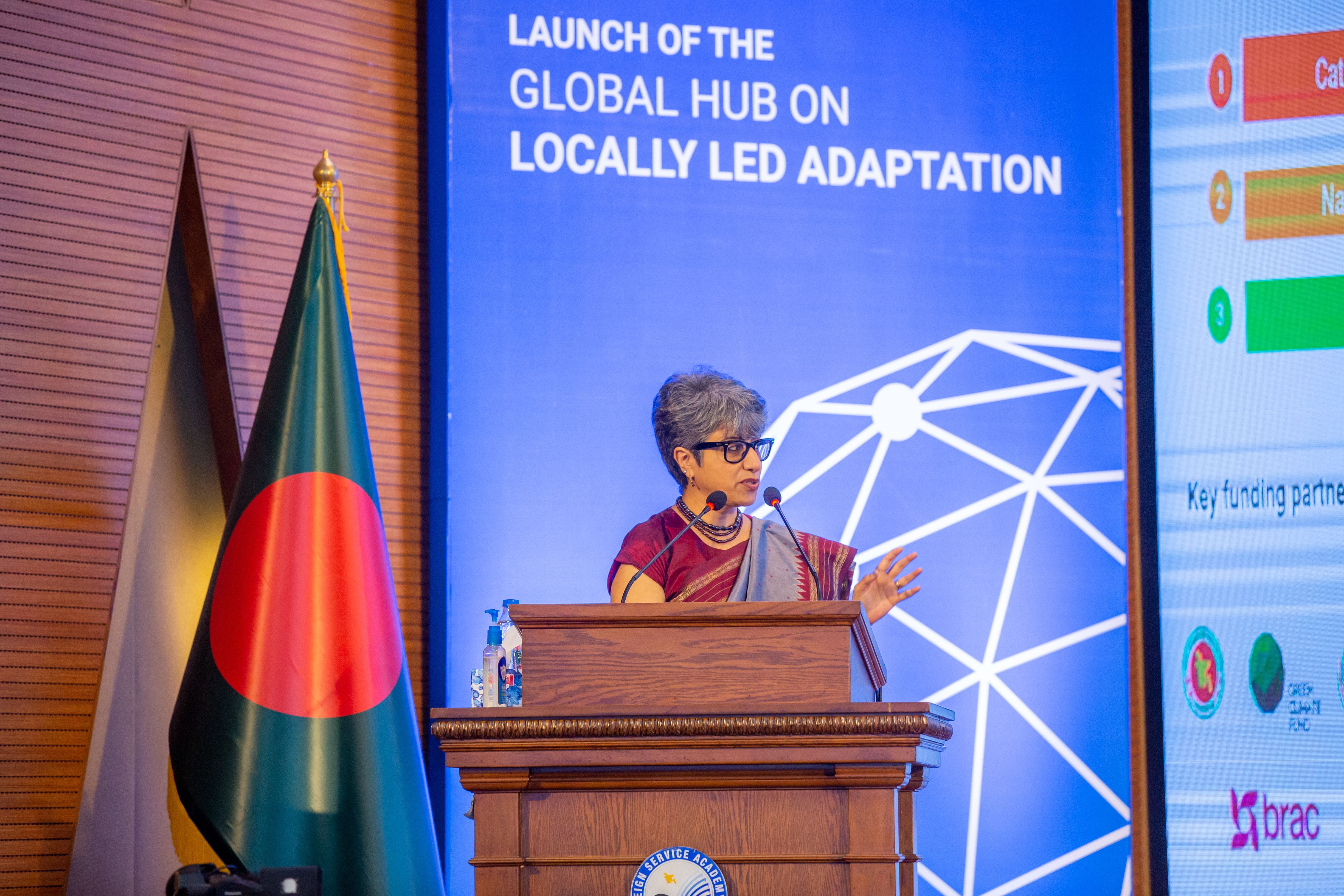
The following speakers from South Asia joined virtually, and delivered remarks on the status of LLA in their countries, and key lessons, challenges, and opportunities:
· Raju Chhetri, Director, Prakriti Resources Centre, Nepal
· Sanjay Vashist, Director, Climate Action Network South Asia
· Liakath Ali, Director, Climate Change, BRAC and BRAC International
· Vositha Wijenayake, Executive Director, SLYCAN Trust, Sri Lanka
· Om Katel, Lecturer, College of Natural Resources, Royal University of Bhutan
· Suranjana Gupta, Advisor, Huairou Commission, India
· Abrar Chaudhury, Research Fellow, Green Templeton College and Saïd Business School, University of Oxford
· Ali Sheikh, Member, External Advisory Group on South Asia Region Climate Change Action, World Bank Pakistan
“What we need is to connect the local communities to the large scale IFIs, so that these initiatives can go to scale,” said Professor Verkooijen in his opening remarks. “That is what the Global Hub on LLA is trying to do.”
While sharing BRAC’s experience of scaling up local models, Ali said: “We try to accumulate knowledge and experiences, build on them and come up with context specific LLA models such as the Adaptation Clinics for rural areas. Based on the success of the pilot, we then scale up and develop something big.”
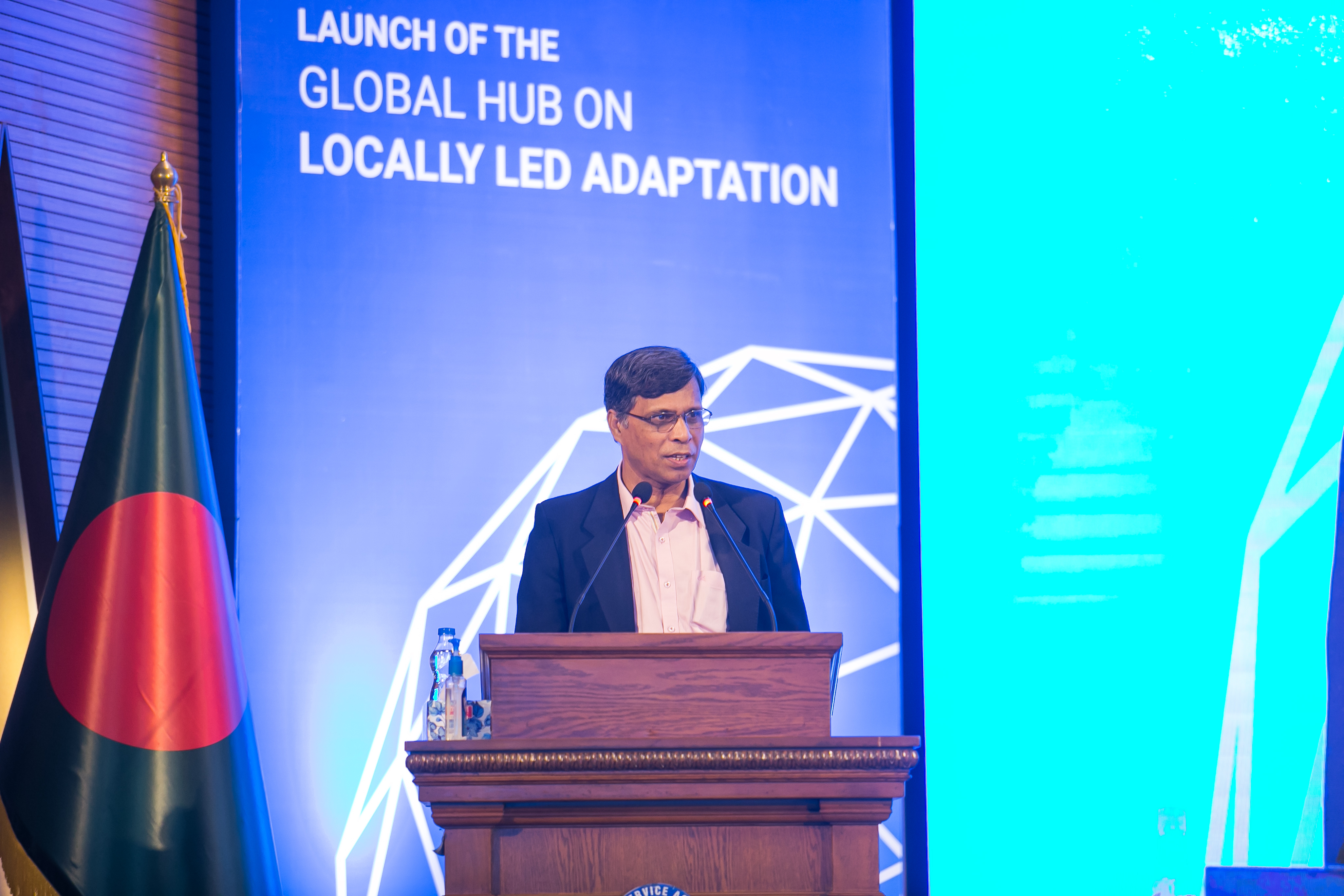
“We see lots of initiatives are considered as local just because they are focused on a locality but not necessarily promote leadership, ownership and inclusion which are important for them to be locally-led,” noted Wijenayake.
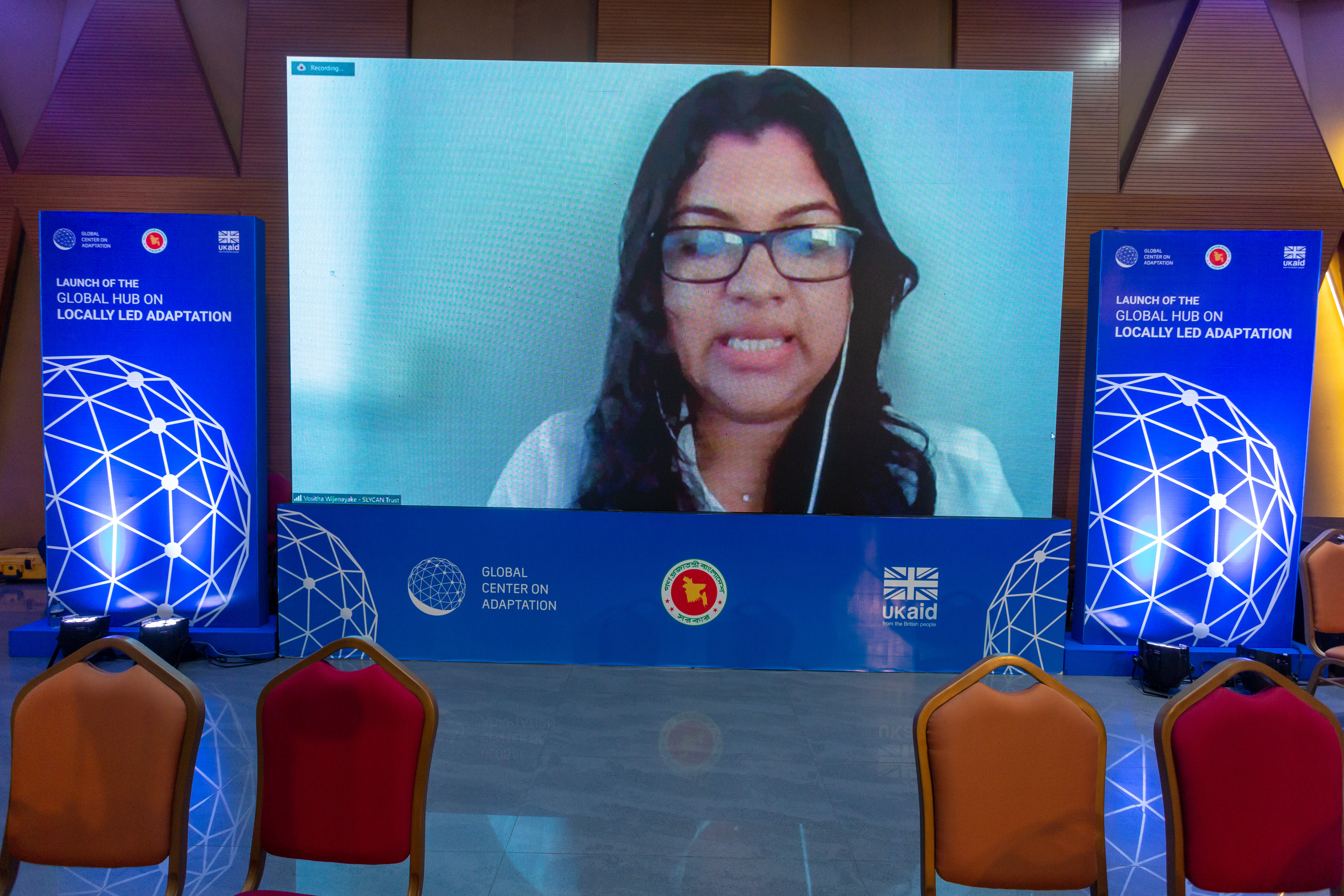
Dr. Huq highlighted the importance of cross learning among the region: “In South Asia, we have a great variety of experiences in different countries and quite a lot of informal discussions among LLA practitioners for sharing experience. We need to now scale it up and do it on a systematic basis. This forum will help us continue the conversation going at the regional level and identify ways in which we can scale up rapidly.”
“Hyper-local, up-to-date data owned by the local communities are highly valued and we have seen them being used during crises which governments often do not have,” said Gupta, while sharing the Commission’s experience of working with grassroot movements.
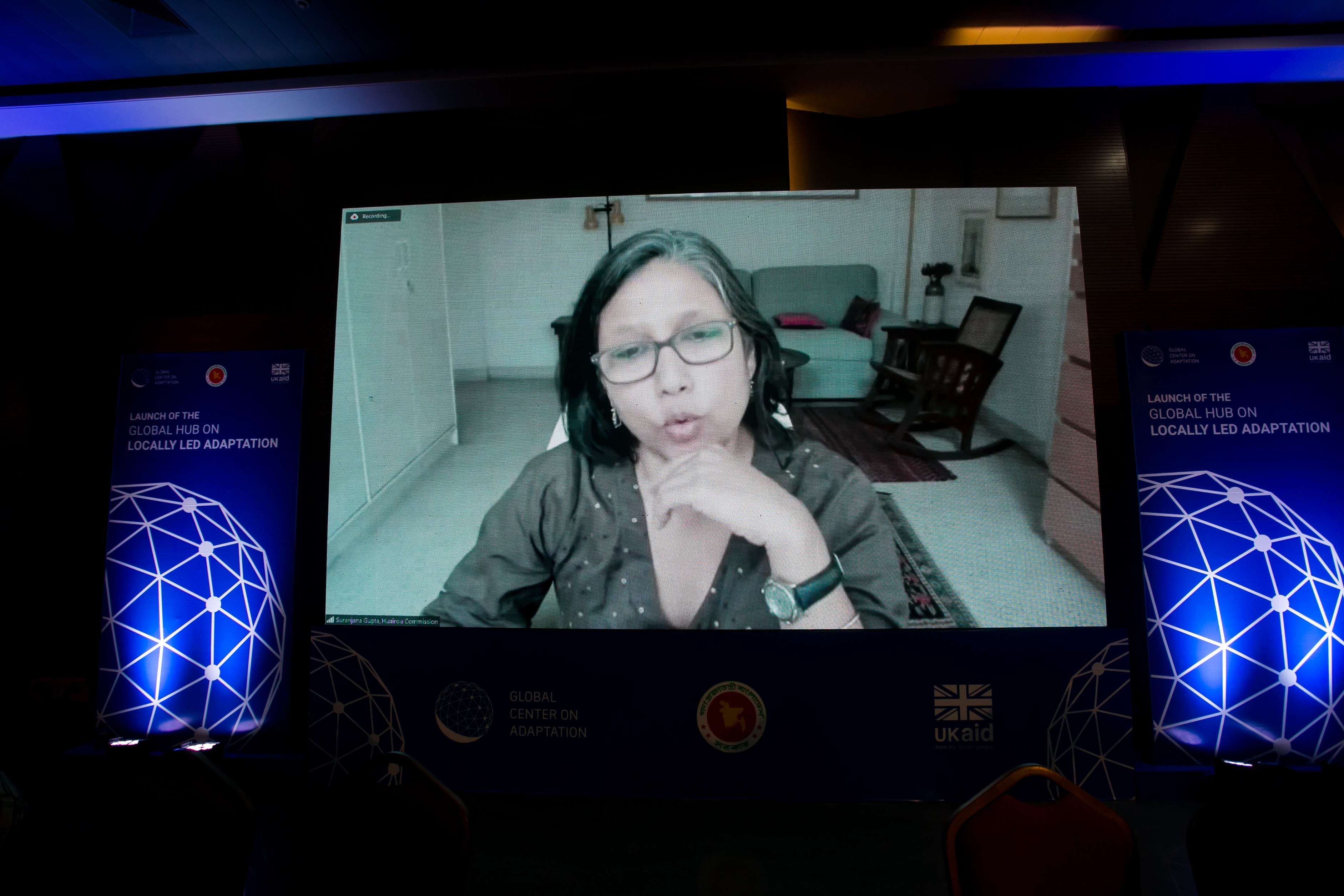
Chhetri shared Nepal’s decade-long experience of developing and implementing Local Adaptation Plans of Action (LAPAs): “The beauty about the LAPA framework is that, it is locally-led. It prioritizes the needs of the local communities on the ground, empowers the communities to implement the actions and ensures the vertical and horizontal coordination among all the stakeholders.”
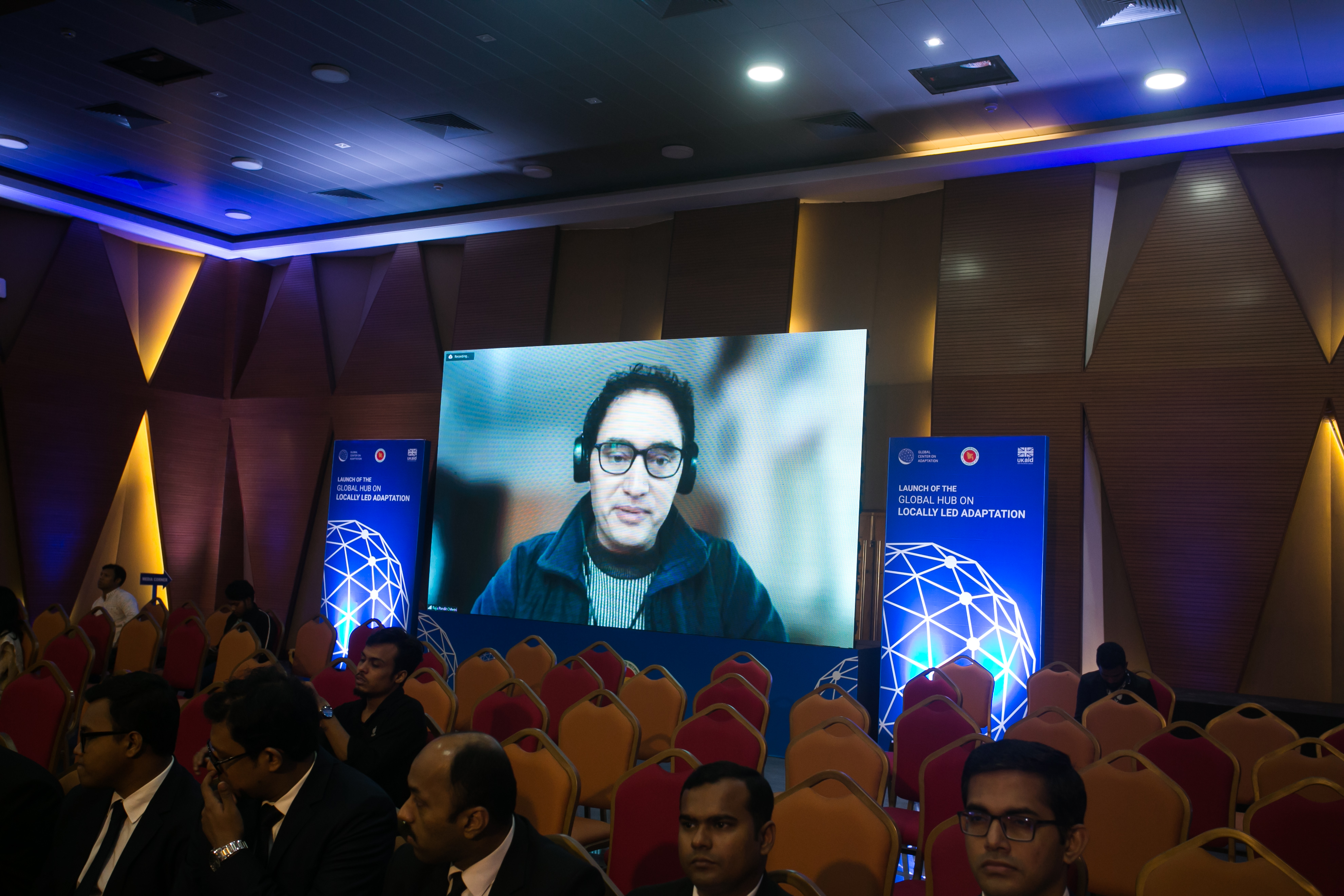
Comparing the LAPA processes of Nepal and Pakistan, Chaudhury said: “The key difference between Nepal and Pakistan’s approach is institutionalization. While Nepal has developed a legal framework to make LAPAs more credible, but comes with capacity gaps, Pakistan’s approach was more experimental to try and convince the government of such locally developed model but lacks the ownership.”
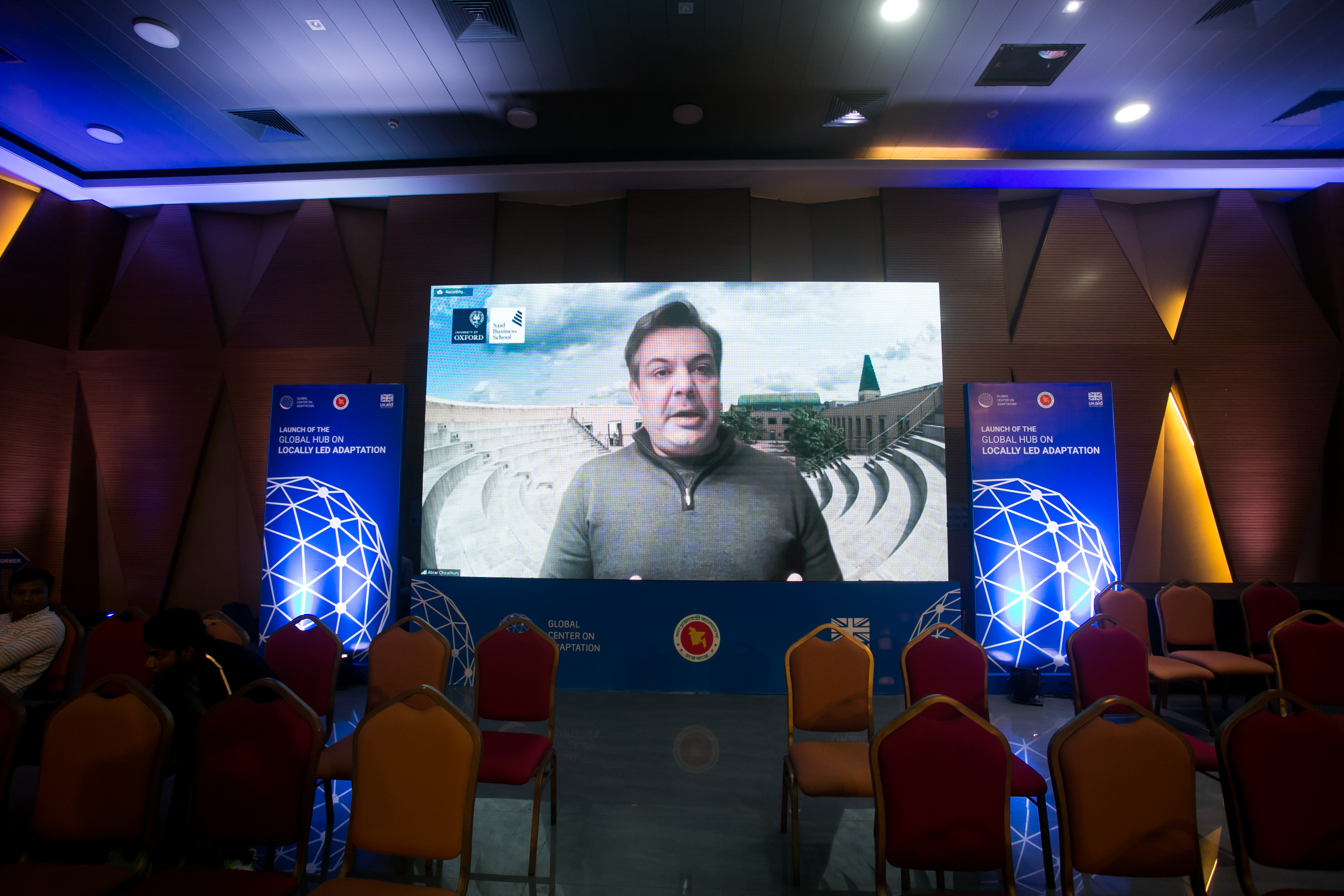
“Unless local governance is strengthened, the implementation of local adaptation plans will be extremely hard,” noted Sheikh.
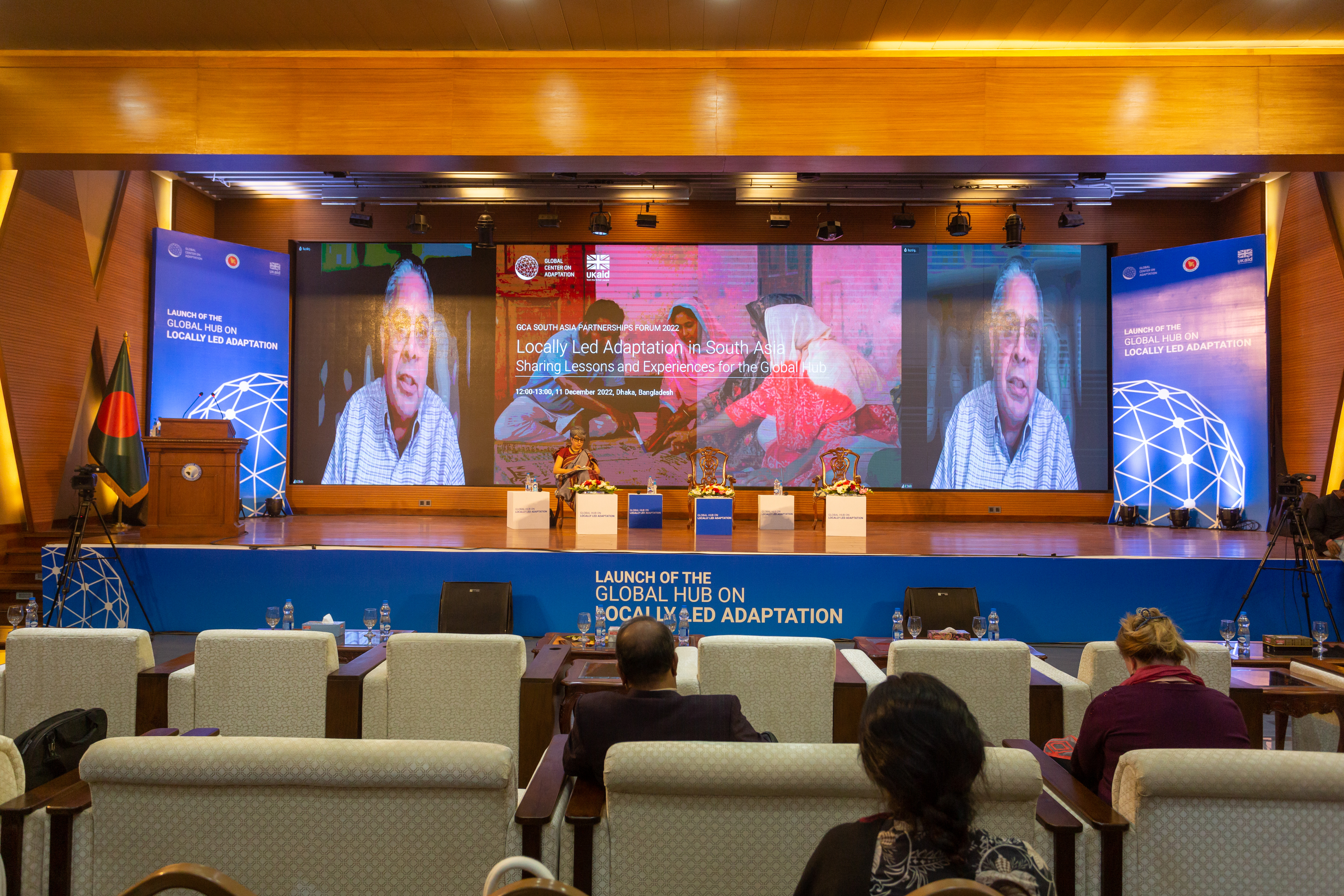
“Demystifying climate change adaptation on the ground in local language will certainly ensure that we have more and more leaders on the ground,” said Vashist, noting that science and practice need to interact regularly.
